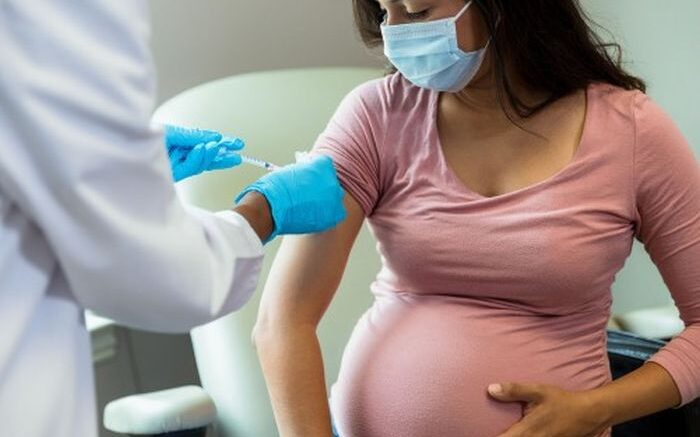Women who received standard recommended immunizations during their pregnancy were more likely to accept the COVID-19 vaccine, according to new research from Cedars-Sinai. Investigators also identified disparities in vaccination linked to race and insurance status.
The findings on COVID-19 vaccine uptake during pregnancy are published in the Journal of Infection.
“We found that patients were more likely to accept COVID-19 vaccination if they were Asian, had private health insurance, and had received the recommended pregnancy vaccinations for Tdap (tetanus-diphtheria-acellular pertussis) and the flu,” said corresponding author Laura Ha, MD, a maternal-fetal medicine fellow in the Department of Obstetrics and Gynecology.
Maternal age and weight, in addition to race, also played a role in vaccine hesitancy.
“Pregnant women who were Black, under 35 years of age, not obese or had public insurance were less likely to accept COVID-19 vaccination,” Ha said.
In this retrospective cohort study, investigators examined the medical records of 7,857 patients who delivered at Cedars-Sinai in Los Angeles between December 2020 and March 2022. Immunizations received during pregnancy were among the health variables evaluated.
In May 2022, when the last of the cohort was included in the study, 78% of the U.S. adult population had received at least one dose of the COVID-19 vaccine, according to the Centers for Disease Control and Prevention. However, the rate among pregnant women was much lower; just 42% were vaccinated in spite of the recommendation of healthcare organizations, including the American College of Obstetricians and Gynecologists.
“COVID-19 infection is associated with an increased risk of severe illness and death in pregnant patients. The vaccine decreases the risk of hospitalization and death from the virus, which is why we recommend that pregnant patients get vaccinated,” said Mariam Naqvi, MD, a maternal-fetal medicine specialist and co-author of the study.
The research also supports the growing body of evidence on the safety of the COVID-19 vaccine for mothers and their newborns.
Our findings were consistent with existing data showing that receiving the COVID-19 vaccine during pregnancy does not increase the risk of preterm birth, low birthweight, low Apgar scores, or admission to the neonatal intensive care unit,” Ha said. The Apgar score is a test given to newborns soon after birth. It assesses the baby's heart rate, muscle tone and other signs to see if extra medical care or emergency care is needed.
Investigators urge continued research on COVID-19 vaccination in pregnant women to ensure equitable and widespread vaccine distribution and to provide safety data that could improve vaccine acceptance and perinatal outcomes.
Source: Cedars-Sinai
